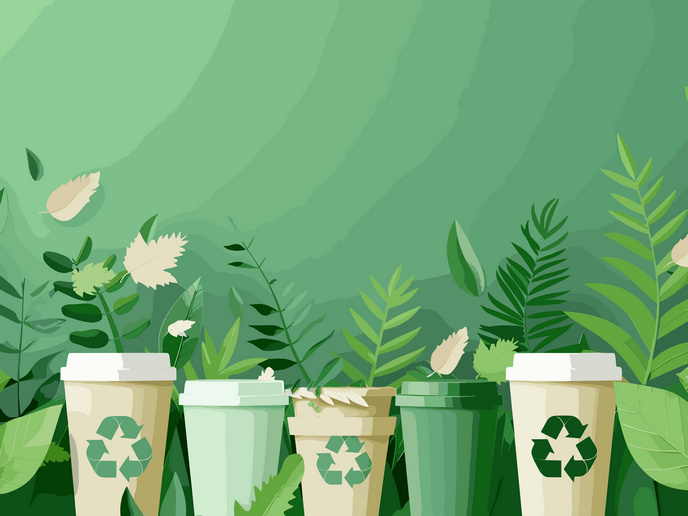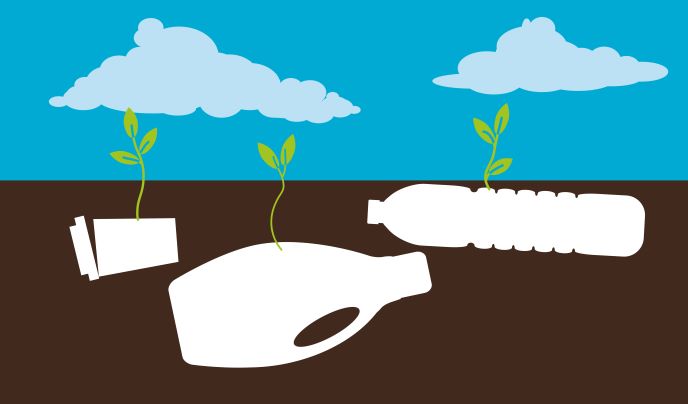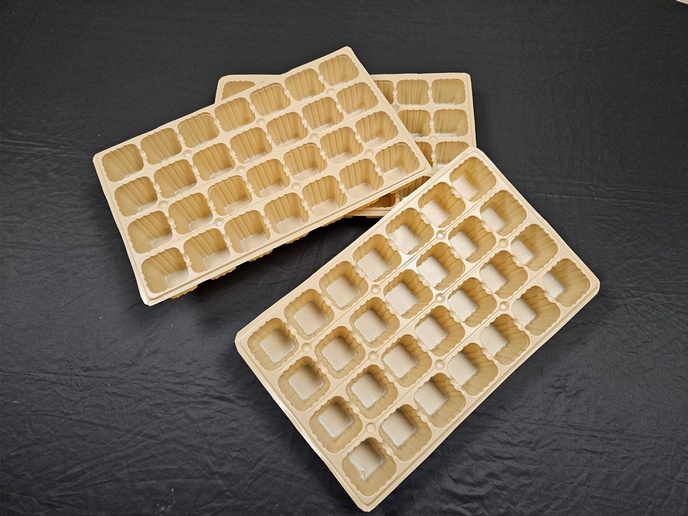Circular innovation: The future of plastics
Most plastics are derived from fossil fuels, and if not properly managed at the end of their lifecycle, they can accumulate in the environment, leading to pollution. Biobased and biodegradable plastics offer a potentially more sustainable alternative, though they come with their own sustainability challenges and trade-offs that must be carefully evaluated. These plastics are derived from biomass, such as plants, algae and organic waste. However, in 2019, biobased plastics represented only 1 % of the 359 million tonnes of plastic products. The European Commission has adopted a policy framework(opens in new window) for the sourcing, labelling and use of biobased, biodegradable and compostable plastics. This aims to foster circular innovation across the entire bio-plastics system to support policymaking, innovation and technology transfer.
Novel biobased plastics
The key objective of the EU-funded BIO-PLASTICS EUROPE(opens in new window) project was to develop sustainable strategies and solutions for biobased plastic products. This involves fostering circular innovation across the entire bio-plastics system to support policymaking, innovation and technology transfer. “The project featured innovative product design, health and safety standards, and end-of-life solutions while conducting comprehensive environmental and economic assessments throughout the product life cycle,” emphasises project coordinator Jelena Barbir. The project focused on different biobased materials, including polylactic acid(opens in new window) (PLA), polybutylene succinate(opens in new window) (PBS), and polyhydroxyalkanoate(opens in new window) (PHA). Sustainability concerns(opens in new window) related to first-generation feedstocks, such as corn and sugarcane were addressed by exploring alternatives like agricultural waste and algae. Applications of these new materials ranged from food packaging and cutlery to fish crates, and involved vigorous testing for degradability and toxicity. Notable applications include PBS-based films for soft packaging, PHA-based compounds for outdoor toys and biodegradable rubber-like products that could help mitigate the fine dust burden from rubber abrasion. Ongoing efforts aim to improve both material properties and their marketability for a range of applications.
Stakeholder engagement
BIO-PLASTICS EUROPE has developed a comprehensive strategy for stakeholder engagement to encourage a holistic, collaborative approach towards biobased plastics research and implementation. The project identified and nurtured connections with thousands of stakeholders, including industry experts, researchers, policymakers and scientists. The project organised various types of activities such as focus groups, interviews and case studies as well as interactive workshops, surveys and webinars. These efforts laid the foundation for meaningful collaboration and ensured a strong commitment from producers, politicians and industrial and private consumers to push the current system towards a more circular economy. Close collaboration with the GLAUKOS project(opens in new window) and a Project2Policy concept helped overcome challenges related to engaging policy decision makers. A workshop with 49 different EU projects in the topic of biobased materials and circular economy facilitated active discussions with different policy officers.
Raising awareness
BIO-PLASTICS EUROPE also undertook a thorough review of current EU standards defining the safe use and end-of-life management of biobased materials. The generated protocol focuses on consumer products such as toys, food packaging and aquaculture equipment, ensuring the safety of biodegradable materials in public policies. The protocol provides guidelines for the safe use and degradability of biobased materials. To raise awareness on current plastic waste issues and highlight the BIO-PLASTICS EUROPE project's efforts in mitigating pollution, the team developed an augmented reality solution. This tool educates the public on the environmental impact and slow degradation of plastics, emphasising the need to reduce plastic littering.







